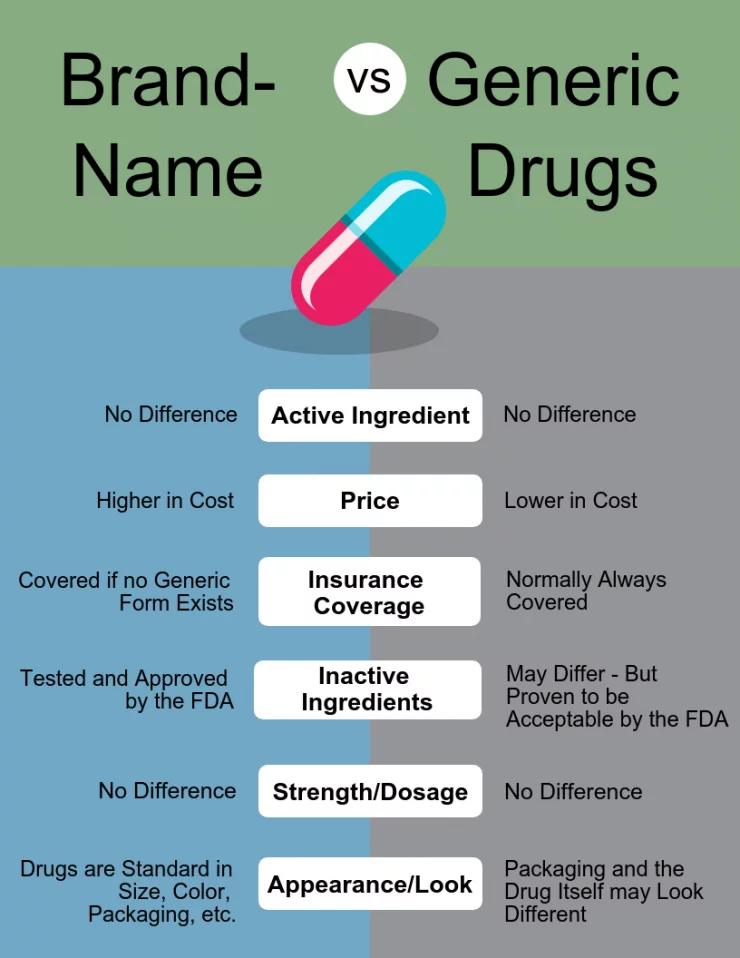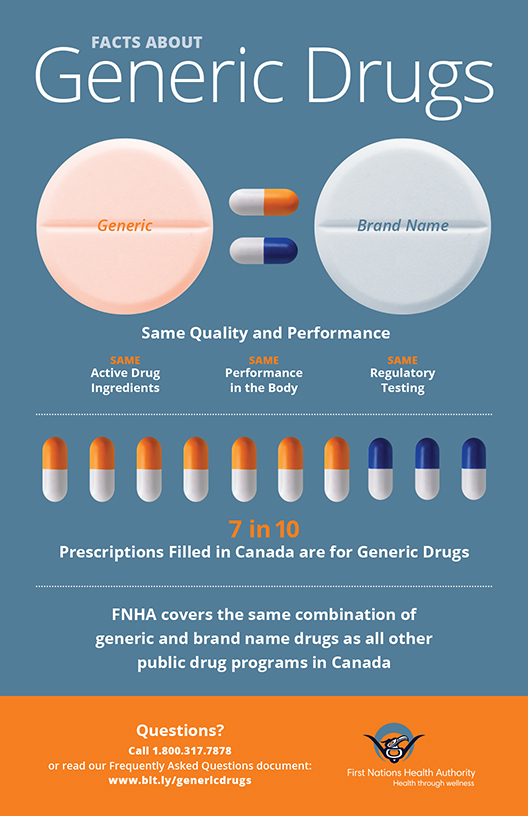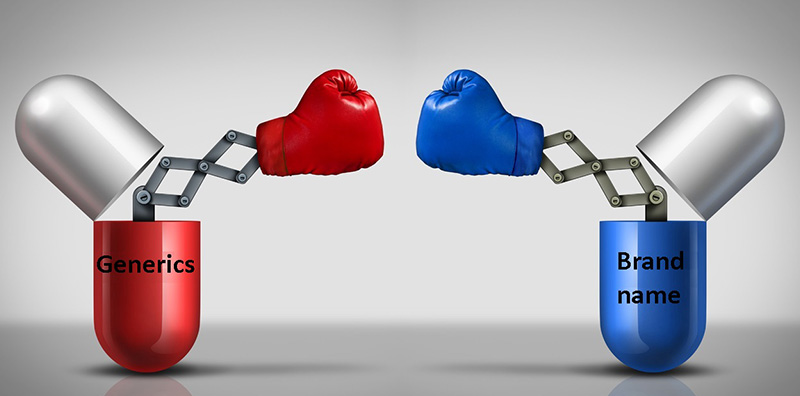
Medication Maze: Unraveling the Differences Between Branded vs Generic Drugs

Differences Between Branded vs Generic Drugs, in the realm of pharmaceuticals, the choice between branded and generic drugs can be akin to traversing a labyrinth. With the healthcare landscape continually evolving, it’s crucial to discern the differences between branded and generic drugs, weigh the pros and cons of branded vs generic drugs, and understand whether generic drugs are as effective as branded counterparts. Moreover, one cannot ignore the significant factor of cost savings with generic vs branded drugs that often comes into play. Let’s embark on this journey of pharmaceutical discovery.

Table of Contents
A Tale of Two Pharmaceuticals: Branded vs. Generic Drugs
Differences Between Branded and Generic Drugs
To comprehend the nuances of these two pharmaceutical categories, we must first acknowledge their origins. Branded drugs, also known as innovator drugs, are created by pharmaceutical companies who invest heavily in research and development (R&D). These drugs often introduce groundbreaking therapies and undergo rigorous clinical trials to gain approval from regulatory authorities.
In contrast, generic drugs are produced after the patent for a branded drug expires. Generic drug manufacturers replicate the active ingredients of the branded drug, ensuring it meets the same quality and safety standards. However, they do not incur the same R&D costs, leading to more affordable pricing.
Pros and Cons of Branded vs. Generic Drugs
Pros of Branded Drugs:
- Efficacy Confidence: Branded drugs have a track record of effectiveness, supported by extensive clinical trials.
- Consistent Quality: Manufacturing standards for branded drugs are stringent, ensuring consistent quality.
- Research and Innovation: These drugs often pioneer new treatment options and therapeutic breakthroughs.
Cons of Branded Drugs:

- Higher Costs: Branded drugs are usually more expensive due to R&D expenses.
- Limited Accessibility: Cost can be a barrier to access, preventing some patients from obtaining needed medications.
Pros of Generic Drugs:
- Affordability: Generic drugs are typically more budget-friendly, making them accessible to a broader demographic.
- Regulatory Approval: They undergo rigorous testing for safety and efficacy, ensuring they meet standards.
- Wide Availability: Once a patent expires, multiple manufacturers can produce generic versions, increasing availability.
Cons of Generic Drugs:
- Perceived Differences: Some patients and healthcare providers may perceive differences in efficacy or side effects.
- Bioequivalence: While they must be bioequivalent to branded drugs, slight variations may exist.
Are Generic Drugs as Effective as Branded?
One of the primary concerns regarding generic drugs is their effectiveness. Regulatory agencies require generic drugs to demonstrate bioequivalence to their branded counterparts. This means that when you take a generic drug, it should produce the same therapeutic effect as the branded version. However, slight variations in inactive ingredients can sometimes lead to perceived differences in efficacy or side effects. It’s crucial to consult with your healthcare provider if you have concerns about switching from a branded to a generic drug.
Cost Savings with Generic vs. Branded Drugs
Perhaps one of the most significant advantages of opting for generic drugs is cost savings. Branded drugs often come with a hefty price tag, reflecting the extensive R&D investments made by pharmaceutical companies. When the patent for a branded drug expires, generic manufacturers can enter the market, driving competition and reducing prices. This cost-effectiveness can significantly benefit patients, especially those with chronic conditions who require long-term medication.
Navigating the Choice: Factors to Consider
1. Efficacy and Safety
When deciding between branded and generic drugs, it’s essential to prioritize efficacy and safety. Consult with your healthcare provider to ensure that the chosen medication will address your specific health needs effectively and without undue risk.
2. Accessibility
Consider the financial aspect of medication. If the cost of a branded drug is prohibitive, generic alternatives can offer a more budget-friendly solution. However, always consult with your healthcare provider before switching medications.
3. Physician Recommendation

Your healthcare provider plays a pivotal role in guiding your medication choices. They can provide valuable insights into the suitability of generic drugs for your condition and treatment plan.
4. Manufacturer Reputation
If you opt for a generic drug, consider the reputation of the manufacturer. Some generic manufacturers have a long-standing history of producing high-quality medications, which can instill confidence in the product.
Conclusion: Differences Between Branded vs Generic Drugs
The choice between branded and generic drugs is a multifaceted decision that hinges on various factors, including efficacy, safety, accessibility, and cost. Understanding the differences between branded and generic drugs empowers patients to make informed choices. While generic drugs offer substantial cost savings and are generally as effective as branded counterparts, it’s essential to consult with healthcare providers to ensure that the chosen medication aligns with individual health needs.

In the evolving landscape of healthcare, the synergy between branded and generic drugs contributes to better accessibility and affordability, ultimately benefiting patients who seek effective treatments without financial burden. By navigating the pharmaceutical maze with knowledge and guidance, individuals can achieve the delicate balance between healthcare excellence and fiscal responsibility.